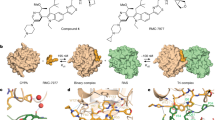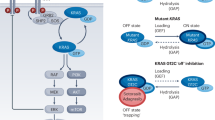Abstract
Background
The REGOBONE multi-cohort study explored the efficacy and safety of regorafenib for patients with advanced bone sarcomas; this report details the Ewing sarcoma (ES) cohort.
Methods
Patients with relapsed ES progressing despite prior standard therapy, were randomised (2:1) to receive regorafenib or placebo. Patients on placebo could crossover to receive regorafenib after centrally confirmed progression. The primary endpoint was the progression-free rate at 8 weeks. With one-sided α of 0.05, and 80% power, at least 14/24 progression-free patients at 8 weeks were needed for success.
Results
From September 2014 to November 2019, 41 patients were accrued. 36 patients were evaluable for efficacy: 23 on regorafenib and 13 on placebo. Thirteen patients (56%; one-sided 95% CI [37.5%–[)) were progression-free at 8 weeks on regorafenib vs. 1 (7.7%; 95% CI [0.4%–[) on placebo. Median PFS was 11.4 weeks on regorafenib, and 3.9 weeks on placebo. Ten placebo patients crossed over to receive regorafenib after progression. The most common grade ≥3 regorafenib-related adverse events were pain (22%), asthenia (17%), thrombocytopenia (13%) and diarrhoea (13%).
Conclusion
Although the primary endpoint was not met statistically in this randomised cohort, there is evidence to suggest that regorafenib might modestly delay tumour progression in relapsed ES after failure of prior chemotherapy.
This is a preview of subscription content, access via your institution
Access options
Subscribe to this journal
Receive 24 print issues and online access
$259.00 per year
only $10.79 per issue
Buy this article
- Purchase on Springer Link
- Instant access to full article PDF
Prices may be subject to local taxes which are calculated during checkout





Similar content being viewed by others
Data availability
The datasets generated and analysed during the current study are not publicly available due to European regulation on data privacy (GDPR). The datasets are also now under licence with Bayer and thus submitted to restrictions. Data are, however, available from the authors upon reasonable request and with permission of Bayer, according to the conditions stated as follows: European regulatory framework: De-identified study data are considered as personal data within the meaning of Regulation (EU) 2016/679 of the European Parliament and of the Council of 27 April 2016, known as “GDPR”. French regulatory framework: In addition to GDPR, the transfer of this data by Unicancer is a processing in itself that is subject to Chapter IX and XII of the updated Within the framework of this law, the data processing is permitted by Unicancer’s conformity to the MR-001 Code of conduct.
References
Rodríguez-Galindo C, Navid F, Liu T, Billups CA, Rao BN, Krasin MJ. Prognostic factors for local and distant control in Ewing sarcoma family of tumors. Ann Oncol. 2008;19:814–20.
Gaspar N, Hawkins DS, Dirksen U, Lewis IJ, Ferrari S, Le Deley MC, et al. Current management and future approaches through collaboration. JCO. 2015;33:3036–46.
Hunold A, Weddeling N, Paulussen M, Ranft A, Liebscher C, Jürgens H. Topotecan and cyclophosphamide in patients with refractory or relapsed Ewing tumors. Pediatr Blood Cancer. 2006;47:795–800.
Casey DA, Wexler LH, Merchant MS, Chou AJ, Merola PR, Price AP, et al. Irinotecan and temozolomide for Ewing sarcoma: the Memorial Sloan-Kettering experience. Pediatr Blood Cancer. 2009;53:1029–34.
Fox E, Patel S, Wathen JK, Schuetze S, Chawla S, Harmon D, et al. Phase II study of sequential gemcitabine followed by docetaxel for recurrent Ewing sarcoma, osteosarcoma, or unresectable or locally recurrent chondrosarcoma: results of Sarcoma Alliance for Research Through Collaboration study 003. Oncologist. 2012;17:321.
Oesterheld JE, Reed DR, Setty BA, Isakoff MS, Thompson P, Yin H et al. Phase II trial of gemcitabine and nab-paclitaxel in patients with recurrent Ewing sarcoma : A report form the National Pediatric Cancer Foundation. Pediatr Blood Cancer 2020;67. https://doi.org/10.1002/pbc.28370
Navid F, Willert JR, McCarville MB, Furman W, Watkins A, Roberts W, et al. Combination of Gemcitabine and docetaxel in the treatment of children and young adults with refractory bone sarcoma. C3 Cancer. 2008;113:419–25.
Rapkin L, Qayed M, Brill P, Martin M, Clark D, George BA, et al. Gemcitabine and Docetaxel (GEMDOX) for the treatment of relapsed and refractory pediatric sarcomas. Pediatr Blood Cancer. 2012;59:854–8.
van Maldegem A, Rutkowski P, Blay JY, van den Berg H, Placzke J, Rasper M, et al. Etoposide and carbo- or cisplatin combination therapy in refrectory or relpased Ewing sarcoma : a large retrospective study. Pediatr Blood Cancer. 2015;61:40–44.
Ferrari S, del Prever AB, Palmerini E, Staals E, Berta M, Balladelli A, et al. Response to high-dose ifosfamide in patients with advanced/recurrent Ewing sarcoma. Pediatr Blood Cancer. 2009;52:581–4.
Pappo AS, Patel SR, Crowley J, Reinke DK, Kuenkele KP, Calwla SP, et al. R1507, a monoclonal antibody to the insulin-like growth factor 1 receptor, in patients with recurrent or refractory Ewing sarcoma family of tumors: results of a phase II Sarcoma Alliance for Research through Collaboration study. J Clin Oncol. 2011;29:4541–7.
Pappo A, Shreyaskumar P, Crowley J, Reinke DK, Kuenkele KP, Chawla SP, et al. R1507, a monoclonal antibody to the insulin-like growth factor 1 receptor, in patients with recurrent or refractory Ewing sarcoma family of tumours: results of a phase II sarcoma Alliance for Research Through Collaboration Study. J Clin Oncol. 2011;29:4541–47.
DuBois SG, Krailo M, Glade-Bender J, Buxton A, Laack N, Lor Randall R, et al. Randomized phase III trial of ganitumab added to interval compressed chemotherapy for patients with newly diagnosed metastatic Ewing sarcoma: a report from the Children’s Oncology Group (COG). J Clin Oncol. 2023;41:2098–107.
Zhou Z, Bolontrade MF, Reddy K, Duan X, Guan H, Yu L, et al. Suppression of Ewing’s sarcoma tumor growth, tumor vessel formation, and vasculogenesis following antivascular endothelial growth factor receptor-2 therapy. Clin Cancer Res. 2007;13:4867–73.
Reddy K, Zhou Z, Schadler K, Jia SF, Kleinerman ES. Bone marrow subsets differentiate into endothelial cells and pericytes contributing to Ewing’s tumor vessels. Mol Cancer Res. 2008;6:929–36.
Potikyan G, Savene RO, Gaulden JM, France KA, Zhou Z, Kleinerman ES, et al. EWS/FLI1 regulates tumor angiogenesis in Ewing’s sarcoma via suppression of thrombospondins. Cancer Res. 2007;67:6675–84.
Wilhelm SM, Dumas J, Adnane L, Lynch M, Carter CA, Schütz G, et al. Regorafenib (BAY 73-4506): a new oral multikinase inhibitor of angiogenic, stromal and oncogenic receptor tyrosine kinases with potent preclinical antitumor activity. Int J Cancer. 2011;129:245–55.
Mir O, Brodowicz T, Italiano A, Wallet J, Blay JY, Bertucci F, et al. Safety of regorafenib in patients with advanced soft tissue sarcoma (REGOSARC): a randomised, double-blind, placebo-controlled, phase 2 trial. Lancet Oncol. 2016;17:1732–42.
Van der Graaf WT, Blay JY, Chawla SP, Kim DW, Bui-Nguyen B, Casali PG, et al. Pazopanib for metastatic soft-tissue sarcoma (PALETTE): a randomised, double-blind placebo-controlled phase 3 trial. Lancet. 2012;379:1879–86.
Duffaud F, Mir O, Boudou-Rouquette P, Piperno-Neumann S, Penel N, Bompas E, et al. Efficacy and safety of regorafenib in adult patients with metastatic osteosarcoma: a non-comparative, randomised, double-blind, placebo-controlled, phase 2 study. Lancet Oncol. 2019;20:120–33.
Perrier L, Rascle P, Morelle M, Toulmonde M, Ranchere Vince D, Le Cesne A, et al. The cost-saving effect of centralized histological reviews with soft-tissue and visceral sarcomas, GIST, and desmoid tumors: the experiences of the pathologists of the French Sarcoma Group. PLoS ONE. 2018. https://doi.org/10.1371/journal.pone.0193330.
A’Hern RP. Sample size tables for exact single-stage phase II designs. Stat Med. 2001;20:859–66.
Attia S, Bolejack V, Ganjoo KN, Georges S, Agulnik M, Rushing D, et al. A phase 2 trial of regorafenib (REGO) in patients with advanced Ewing sarcoma and related tumors of soft tissue and bone: SARC0024 trial results. Cancer Med. 2023;12:1532–39.
Italiano A, Mir O, Mathoulin-Plissier S, Penel N, Piperno-Neumann S, Bompas E, et al. Cabozantinib in patients with advanced osteosarcomas and Ewing sarcomas (CABONE): a multicentre, single-arm, phase 2 phase trial. Lancet Oncol. 2020;21:446–55.
McCabe MG, Moroz V, Khan M, Evans A, Fenwick N, Gaspar N, et al. Phase III assessment of topotecan and cyclophosphamide and high-dose ifosfamide in rEECur, an international randomised controlled trial of chemotherapy for the treatment of recurrent and primary refractory Ewing sarcoma (RR-ES). J Clin Oncol. 2022. https://doi.org/10.1200/JCO.2022.40.17_suppl.LBA2.
Tawbi H, Burgess M, Bolejack V, Van Tine BA, Schuetze SM, Hu J, et al. Pembrolizumab in advanced soft-tissue sarcoma and bone sarcoma (SARC028): a multicentre, two-cohort, single-arm, open-label, phase 2 trial. Lancet Oncol. 2017;18:1493–501.
Paoluzzi L, Cacavio A, Ghesani M, Karambelkar A, Rapkiewicz A, Weber J, et al. Response to anti-PD1 therapy with nivolumab in metastatic sarcomas. Clin Sarcoma Res. 2016;6:24 https://doi.org/10.1186/s13569-016-0064-0
D’Angelo SP, Mahoney MR, Van Tine BA, Atkins J, Milhem MM, Jahagirdar BN, et al. Nivolumab with or without ipilimumab treatment for metastatic sarcoma (Alliance A091401): two open-label, non-comparative, randomised, phase 2 trials. Lancet Oncol. 2018;19:416–26. https://doi.org/10.1016/S1470-2045(18)30006-8
Acknowledgements
We thank the patients and their families for their participation in the study. We thank all the UNICANCER sarcoma staff members involved in the trial management. The data management was conducted by UNICANCER, the analysis was done by Centre Léon Bérard. We thank the patient advocacy group InfoSarcomes. We thank the French National Cancer Institute for funding the labelled networks for the management of sarcoma (e.g., NetSarc, RRePS, RESOS, and InterSarc).
Funding
Bayer Healthcare SAS (Loos, France) supplied regorafenib and placebo tablets and provided funding to UNICANCER. The funder had no role in study design, data collection, monitoring, analysis, and interpretation or writing of the report. Once the trial has been designed, UNICANCER, as the Sponsor for the study, in collaboration with the French Sarcoma Group was responsible for all aspects of the trial. This study was not funded by NIH.
Author information
Authors and Affiliations
Contributions
FD and SC designed and supervised the trial and wrote the article; FD, SC and CS analysed the data and contributed to the trial design. All other authors supervised clinical patient management, reviewed and approved the article.
Corresponding author
Ethics declarations
Competing interests
FD received travel grants from Pharmamar, and Leo Pharma, attended advisory boards for Bayer, Lilly. CC attended advisory boards for Leo Pharma, JYB receives research support and honoraria from Eisei, Eli Lilly, MSD, BMS, GSK, Ignyta, Novartis, Pharmamar and Roche unrelated to this work. AL, AI, PB, EK, NP, CP, VL, EB, ESBB, FB, CS, VL, MC, CS,LM, VV, NG and SC declare no competing interests.
Ethics approval and consent to participate
The study was approved by an ethical and regulatory committee (French Ethical Committee, Comité de Protection des Personnes Sud Méditerrannée 1, approved on March 26, 2014). This study was performed in accordance wuth the Declaration of Helsinki. All patients provided written informed consent before enrolment, and one study amendment (protocol V6, June 29, 2016) expanded enrolment to include paediatric patients aged >10 years (although ultimately only one child was enrolled). The trial is registered in the European Clinical Trials Register database (EudraCT N°: 2013-003910-42) and at ClinicalTrials.gov (NCT02389244).
Consent for publication
Not applicable.
Additional information
Publisher’s note Springer Nature remains neutral with regard to jurisdictional claims in published maps and institutional affiliations.
Supplementary information
Rights and permissions
Springer Nature or its licensor (e.g. a society or other partner) holds exclusive rights to this article under a publishing agreement with the author(s) or other rightsholder(s); author self-archiving of the accepted manuscript version of this article is solely governed by the terms of such publishing agreement and applicable law.
About this article
Cite this article
Duffaud, F., Blay, JY., Le Cesne, A. et al. Regorafenib in patients with advanced Ewing sarcoma: results of a non-comparative, randomised, double-blind, placebo-controlled, multicentre Phase II study. Br J Cancer 129, 1940–1948 (2023). https://doi.org/10.1038/s41416-023-02413-9
Received:
Revised:
Accepted:
Published:
Issue Date:
DOI: https://doi.org/10.1038/s41416-023-02413-9



